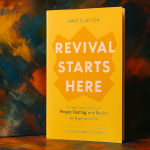Are pop songs getting sadder?
From WSJ by Christopher Shea:
As measured by key and tempo — and setting lyrics aside —pop music has gotten gloomier since the ’60s, two researchers report.
They analyzed the top 40 songs on the Billboard “Hot 100″ chart for selected years from 1965 through 2009, assessing whether each hit was written in a major or minor key, and taking note of its tempo and duration.* Though it’s hardly an ironclad rule, songs in a minor key tend to be associated with melancholy emotions, as do slower songs. (When songs mixed major and minor modes, the song was classified according to the longer-lasting mode; when they varied in tempo, the beats-per-minute of different sections were averaged.)
Over time, the most striking change had to do with mode: In the 1965-69 period, 85% of hits were written in a major key; that proportion had dropped by half by 2005-09, to 42.5%.
Somewhat less impressively, songs also dropped to 100 beats per minute in 2005-2009 from 116 beats per minute in 1965-69. (Yet the slowest period was actually 1995-99, at 89 b.p.m.)
What’s more, there were signs, the authors said, that that pop music was growing not only sadder but more emotionally ambiguous: Major-key songs (the “happy” songs), for example, slowed down over time more than minor-key songs, possibly introducing tension between mode and tempo.
But it’s that single statistic about mode — that the proportion of major songs dropped so substantially— that really stands out, giving meat to the study.
The researchers— the psychologist E. Glenn Schellenberg of the University of Toronto at Mississauga and the Freie Universität Berlin, and the sociologist Christian von Scheve, of the Freie Universität Berlin — attributed the finding of ambiguity, in part, to the commercial success of independent music that challenged hit-making formulas. About the more-general shift toward melancholy, they offered only broad speculation, such as the “rise of subjective identities” in the modern world and increasing economic inequality and insecurity — but, to their credit, they made clear that they were speculating.















